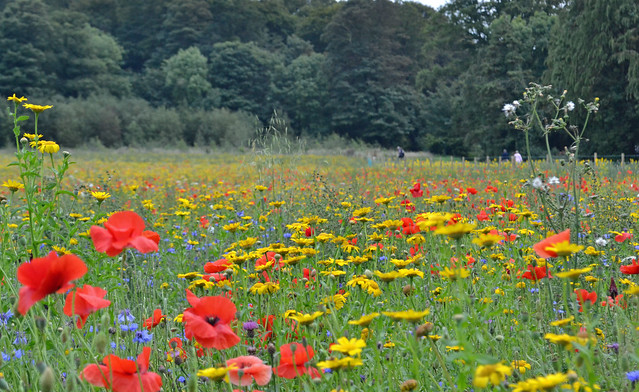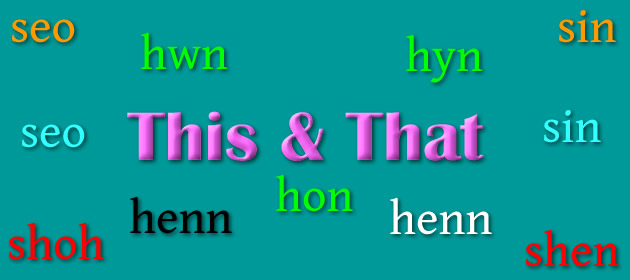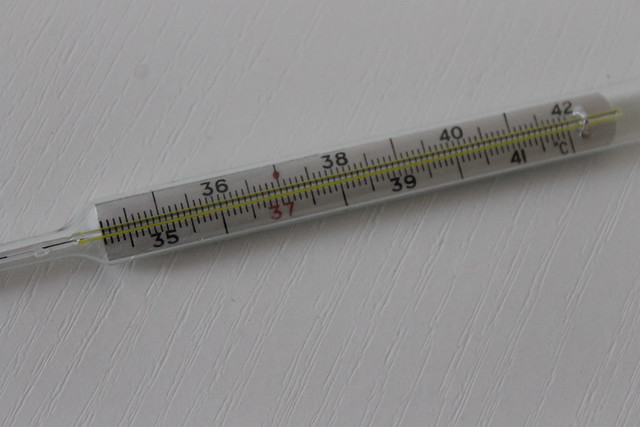Words for flower, blossom and related words in Celtic languages.
| Proto-Celtic | *blātus = flower, blossom |
|---|---|
| Old Irish (Goídelc) | bláth = flower, blossom, bloom |
| Irish (Gaeilge) | bláth [bˠl̪ˠɑː/bˠl̪ˠaː] = blossom, flower; bloom, beauty, prime; prosperity, abundance bláthach = floral, flowering bláthadóir = florist bláthadóireacht = cultivation of flowers bláthaigh = to blossom, bloom bláthóg = floret |
| Scottish Gaelic (Gàidhlig) | blàth [bl̪ˠaː] = bloom, blossom, flower; consequence, effect; heyday blàthaich = (to) flower, flourish blàthach = flowery |
| Manx (Gaelg) | blaa [bleː] = bloom, blossom, flower; heyday, pride blaaghey = to bloom, blossom, bud, flourish, flower blaagheyder = florist blaaoil = floral, florid, flowery |
| Proto-Brythonic | *blọd = flower |
| Middle Welsh (Kymraec) | blodeuyn, blodeun, blodeuoed = flower blodeu, blodev, bloden, blawt, blawd = flowers |
| Welsh (Cymraeg) | blodyn [ˈblɔdɨ̞n / ˈbloːdɪn] = flower, bloom, blossoms, florets, flowering plant, petal blodau = flowers, blooms, blossom, florets; flowering plant blodeuad = flowering, blooming, blossoming blodeua(f), blodeuo = to flower, bloom, blossom, bud; flourish, thrive, prosper; mature, gather flowers; to menstruate blodeuaidd = floral, flower-like, flowering, floriform blodeuas = bouquet blodeuddwyn = floriferous, flower-bearing |
| Old Cornish | blodon = flower, blossom |
| Middle Cornish (Cernewec) | blodon, bledzhian, bledzhan = flower, blossom |
| Cornish (Kernewek) | bleujen [ˈblɛdʒən] = blossom, flower bleujyowa = to blossom, flower bleujyowek = flower bed |
| Old Breton | bloduu = blossom, flower |
| Middle Breton (Brezonec) | bleuzff = blossom, flower |
| Breton (Brezhoneg) | bleuñv [blœ̃w] = flowers, flowering; apogee; menstruation bleuãvenn = flower bleuñveg = flowerbed bleuñvell = jewel, floret bleuñvellek = flowery bleuñvin = to flower, blossom, flourish |
Etymology: from the Proto-Indo-European *bʰleh₃- (bloom, flower) [source]. Words from the same PIE root include bloom, blossom, blade, flower, flour and flourish [source].
Words marked with a * are reconstructions.
Sources: Wiktionary, Am Faclair Beag, Online Manx Dictionary, Teanglann.ie, eDIL – Electronic Dictionary of the Irish Language, In Dúil Bélrai English – Old Irish glossary, Geiriadur Prifysgol Cymru, Gerlyver Kernewek, Gerlyvyr Cernewec, Dictionaire Favereau, TermOfis, Le dictionnaire diachronique du breton, Geriafurch, English – ProtoCeltic WordList (PDF), Etymological Dictionary Of Proto Celtic










